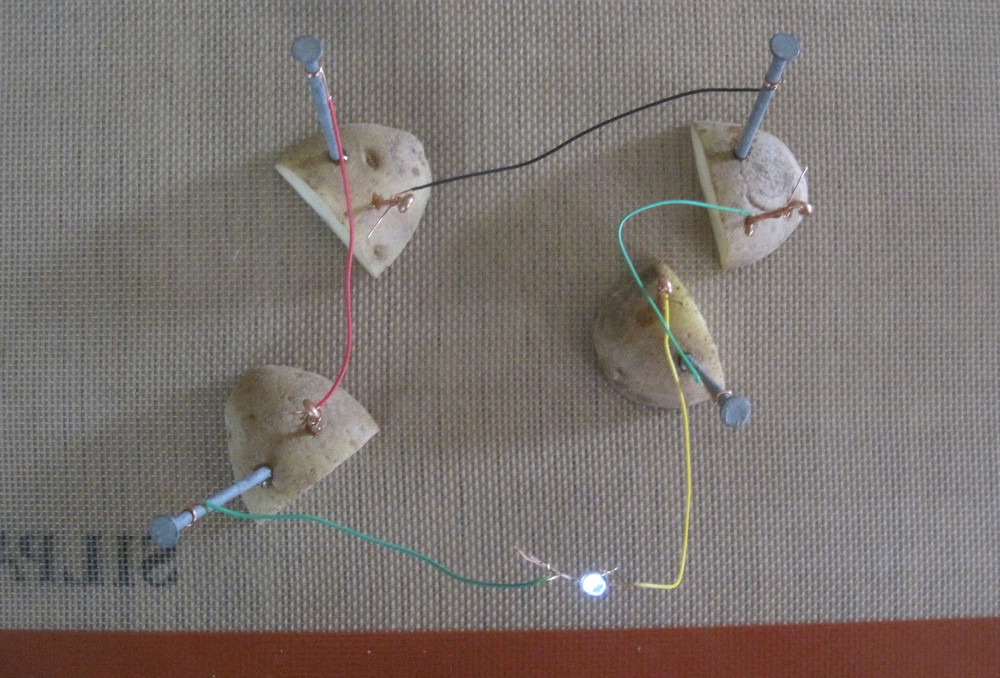(2)
A 'battery' can be made from any two different metals
(or non-metal conductors) and an
electrolyte, usually an acidic liquid. The potato is
weakly acidic, and you can also use lemons, oranges, water melon,
vinegar etc.
In the picture, you can see 4 copper-zinc-potato batteries.
|

|
(3)
But first let's see what different combinations of metals can do.
Stick different metals, one pair at a time, into the potato, and measure
the voltage. There are
6 different unique combinations (marked with '?'.
Which combination gives the highest voltage?
Voltmeter cheat sheet
|
copper steel aluminum zinc
-------+-------+----------+------
copper - | ? | ? | ?
steel - | - | ? | ?
aluminum - | - | - | ?
zinc - | - | - | -
|
(4)
What does it take to light up an LED? AN LED takes a few volts before it
will turn on, so one potato battery will not do it.
You can add
voltages by connecting batteries in series. Here you can
see the two right copper-zinc batteries are connected, that is, the zinc
of the first is connected to the copper of the second. Wrap wires tight
to make a good contact (sometimes cleaning the surface, in particular of
the zinc nails, with the little piece of sandpaper)
Two potatos, still not enough

|
(5)
Four cells lights up the LED!
Going counterclockwise from the LED, you see the long leg
of the LED goes to the copper leg of the 1st cell, then zinc connected
to copper of the second cell, and twice more until the green wire from
the last cell goes to the short leg of the LED.

|
(6)
Currently, battery research is hot stuff. Researchers are looking for:
- Small, lightweight, long-lasting batteries for mobile devices
- Very large batteries for storage of solar and wind power
(weight is not a problem here)
- Big, lightweight batteries for electric cars and trucks
- How about airplanes?
| | |